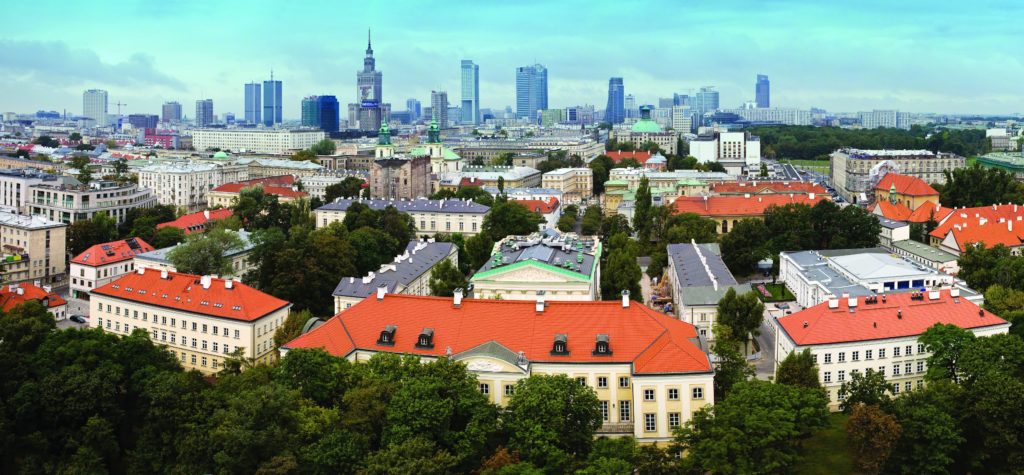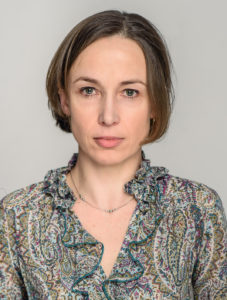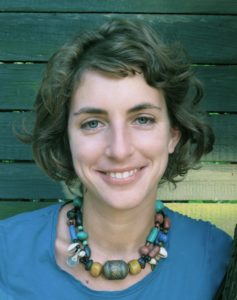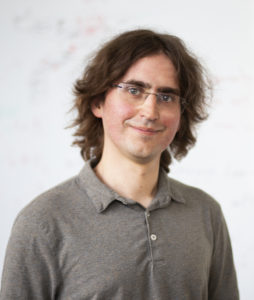As many as 22 out of more than one hundred POLONEZ Fellows have joined research teams at various faculties and independent research units of the University of Warsaw, which makes it the programme’s largest institutional partner. What kind of impact have they had on the University?
Prof. Agata Górny from the Centre of Migration Research, Dr Michał Pilipczuk from the Institute of Informatics and Dr hab. Marta Szulkin, Head of the Wild Urban Evolution & Ecology Lab at the Centre of New Technologies shared their insights with us.
The projects carried out under the MSCA POLONEZ programme have definitely increased the University’s research potential. Among other things, the Fellows have helped create new thematic research groups, many of which are unique in Poland. On many occasions they have contributed to the expansion of earlier research perspectives.
POLONEZ helped to shape new mind-sets and preparedgroups of young ambitious researchers to become leaders in subsequent scientific projects. Their involvement in the dissemination and communication activities of project results – in scientific publications, at conferences, seminars or debates in the media – has increased the visibility of the University of Warsaw as an important research centre in a number of disciplines.
What was the biggest organisational challenge?
There were two such challenges we had to address even before the start of individual research fellowships – the relocation of the POLONEZ Fellows to Poland and the on-boarding process with the new employer. For many researchers, participation in mobility programmes means changing country and institution every two or three years. So they have to adapt to the new context and at the same time maintain contacts with their home institutions, which can be rather difficult. Our experience shows that projects achieve better results if they become the common ground for scientific cooperation between the Fellow’s home institution and the new host institution in Poland. We are happy to say that many fellowships successfully established long-term international cooperation and its continuation beyond the project end date has proved beneficial to all interested parties, regardless of whether the Fellow decides to move on, return to his/her previous employer or stay at the University of Warsaw to continue his/her career here.

MSCA POLONEZ is one of many HORIZON 2020 initiatives in which the University takes part. Does it stand out from the others?
POLONEZ goes beyond the classic concept of individual mobility programmes by combining their advantages with the possibility for the establishment of new research groups – aside from individual remuneration, the Fellows receive funds to set up their own research team at the host institution for the duration of the project. This gives them two important advantages in terms of career development: they gain research experience outside their home institutions and act as heads of scientific teams. In this way, they gain hands-on experience in guiding less experienced researchers; often for the first time in their lives they take on the role of scientific leaders of the groups they set up, and become mentors for co-investigators on their way to the position of principal investigators in the future. Therefore the positive impact of an individual POLONEZ fellowship goes way beyond the Fellow’s career development only.
Thanks to the European Commission’s funding, the Fellow’sremuneration in the project is relatively high, which is an important financial incentive for promising scientists from abroad with valuable scientific achievements to apply for POLONEZ grants.
Why is it important for the University to attract international mobility?
It is one of the sources of innovation in research thanks to the exchange of knowledge and scientific ideas between a foreign
scientist and scientists from the host institution. It also provides an opportunity to compare the organisational cultures of scientific institutions from Poland and abroad and to implement good practices at the institution hosting the foreign scientist. International mobility contributes to increasing the research potential of the host institution, to establishing international, interdisciplinary research teams, and creates opportunities for the preparation of joint scientific publications and joint long-term research grants to further expand newly established scientific teams and research activities.
International mobility is one of the sources of innovation in research. We are happy to invite more international researchers to join the University of Warsaw research community for the benefit of all parties and for the further development of science.
Prof. Agata Górny is the Head of the Department of Population Economics and Demography at the Faculty of Economic Sciences of the University of Warsaw and Deputy Director of the Centre of Migration Research, University of Warsaw.
She is also the deputy president of the Committee for Migration Research of the Polish Academy of Sciences. An economist and sociologist by education, she was awarded a PhD in 2002 at the School of Slavonic and East European Studies, University College London. Her PhD thesis was devoted to the role of social, economic and political networks in settlement migration to Poland using the example of Ukrainian migrants. Her research interests include the methodology of migration research, contemporary migration processes, primarily patterns of immigration to Poland and Central and Eastern Europe, and the integration of migrants in the host society.

Dr hab. Marta Szulkin is a group leader of Wild Urban Evolution and Ecology Lab in Centre of New Technologies of the University of Warsaw.
In 2008, she defended her doctoral thesis at the University of Oxford under the supervision of Prof. Ben Sheldon. Her doctoral thesis was devoted to an analysis of inbreeding and dispersal in birds. Her research interests include urban biology (ecology and evolution). One of her latest achievements is the publication of a book entitled Urban Evolutionary Biology (Oxford University Press), where Dr hab. Szulkin is the co-author and chief editor.

Dr Michał Pilipczuk is an assistant professor at the Institute of Informatics, Faculty of Mathematics, Informatics and Mechanics of the University of Warsaw.
In 2013, he defended his doctoral thesis in Theoretical Computer Science Tournaments and Optimality: New Results in Parameterized Complexity at the University of Bergen, Norway, under supervision of Prof. Fedor V. Fomin. His research interests include algorithms on discrete structures (particularly, parameterized algorithms), structural graph theory and logic in computer science. In 2020 the European Research Council awarded him a Starting Grant for his BOBR project, in which together with his team, he will try to solve discrete problems in networks using their structural and decomposition properties.

The interview was originally published in 2020 in The POLONEZ experience – why it matters.
